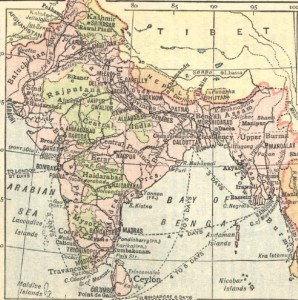An East India Company assassin aims a deadly bullet.
Tag Archives: East India Company
Lord of the Rings Actor to play Villain in Beyond the Mask
John Rhys-Davies of Lord the Rings fame has officially accepted a lead role in Beyond the Mask, a period action-adventure currently filming in the Detroit area. Beloved by American and British audiences alike, celebrated Welsh actor Rhys-Davies is best known as Sallah in Indiana Jones: Raiders of the Lost Ark and Gimli the dwarf in the acclaimed Lord the Rings trilogy. A SAG award winner and Emmy nominee, Rhys-Davies’ trademark presence, rich voice, and adaptability will undoubtedly suit him to his upcoming role as the calculating villain in Beyond the Mask.
This fall, Rhys-Davies will play Charles Kemp, a powerful entrepreneur in the British East India Company. Kemp is at once a respected businessman and feared criminal. Rhys-Davies joins a cast of over 30 respected actors, including Ade M’Cormack of Lost and Thomas Mahard of Gran Torino.
Set in the tumult of 1770s England and America, Beyond the Mask follows the trail of an East India Company hitman who seeks the power to bury his past, become a hero, and win the girl. Ultimately, in spite of his best efforts and traded identities, he realizes his need for justification through Christ alone. Marrying intense action-adventure and period drama, Beyond the Mask offers a unique and pioneering approach to Christian film.
Like Beyond the Mask on Facebook.
East India Company
As we close in on the final draft of the screenplay, we’d like to share with you a little about the true history that inspired the back-story and setting for Beyond the Mask. As you know, Beyond the Mask’s protagonist William Reynolds was a hit-man for the British East India Trading Company.
Since the early 1600s, the EIC had a trade monopoly over the Indian Subcontinent, which they enforced with a 200,000 man private army. Over the next 150 years, though treachery, bribes, and open violence, they conquered the kingdoms of India, until the whole region was directly under Company rule.
Check out this article about the EIC that was recently published in the Economist.


